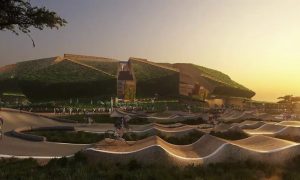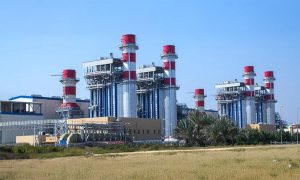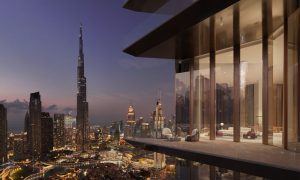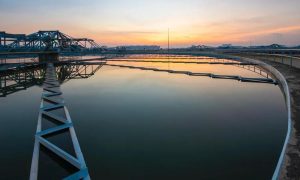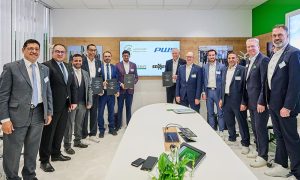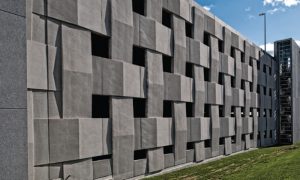Women in Construction: Godwin Austen Johnson’s Swati Rokade
“While there is a marked improvement, there is still room for things to get better”
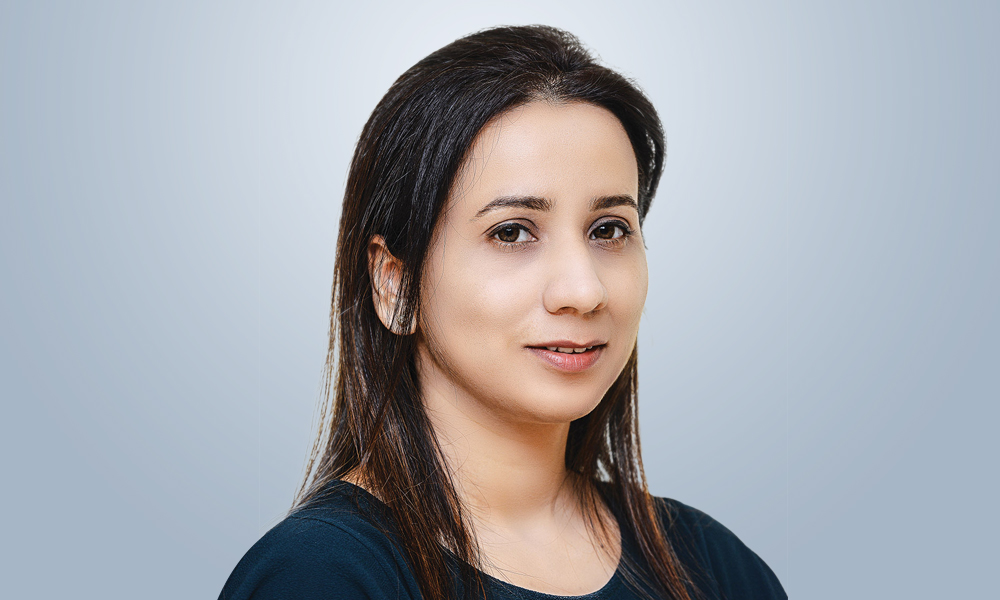
“Go for it! Hold your head high and have faith in your capabilities. Intelligence and hard work always count and make an impact…”
As part of the Women in Construction series, Godwin Austen Johnson’s Swati Rokade talks about battling mental barriers and perceptions, both for men and women..
What drove you to get into construction and your very first role in the industry? What were some of the influences that set you on your path?
Architecture is not limited to the office, design and drawings, it relies on the successful implementation and construction on-site. Following my graduation, I worked in varied offices with different design and construction styles to expand my knowledge. This helped me gain experiences, understand the different streams in this profession and find my footing as an architect.
Having spent a considerable time on design, interior consultancy and project management consultancy, I knew I wanted to get into the field to understand the dynamics of construction. A successful project is the one that is built and doesn’t just exist on paper. This is what motivated me to go on-site, to better understand the process of construction in its depths and intricacies.
My first role was as a site architect on one of the most iconic projects in Qatar at that time – the Museum of Islamic Arts, Doha. One of my motivating influences was working with the principal architect for this project. The perseverance towards quality in construction and support has been both encouraging and motivating. The other subconscious influence that I realised only later in my life has been through my parents, whose belief in equal opportunities and values has helped me stand strong and persevere.
What have been your career and key milestones to date?
I graduated from the Pune University in India in early 2000. I strongly believe in expanding my universe and understanding all aspects and nuances of this profession, and in line with a desire to expand my knowledge and experience. I have tackled different typologies of projects, from residential, industrial, hospitality, commercial, retail and government buildings to hospitality, theme parks, museums and airports – within the architecture and interior design sectors.
Similarly, I have explored various facets of this industry, from architectural design and Interior design to project management, site-based design management and construction. Many of the projects I have worked on have allowed me to work on projects in India, Qatar, the UAE, Bahrain, KSA, Azerbaijan, London, China, Yemen and Muscat. This, aside from giving me exposure to different countries, has given me insights in different work ethics, cultural diversity and the social concepts that drive the construction field in these regions.
My key achievements would be the design and construction of an IT tower in India, achieved well before the baseline programme; the design management and delivering the FOH ID areas in diverse projects such as the Atlantis Hotel, the Palm Jumeirah, the Museum of Islamic Arts in Doha, the Abu Dhabi Stock Exchange, Mumbai International Airport and the Ferrari World theme park in Abu Dhabi, to name a few; a highly successful design and build project in Aden, Yemen. This was a fast-track project which, right from the concept stage through procurement to the actual execution on-site, was delivered on time and to the client’s satisfaction.
What would you say has been your proudest moment in the industry?
I believe in judging a person by his/her work and capabilities not by their gender or nationality. Biases are prevalent in the construction sector and region, but this is now changing noticeably. The construction industry is predominantly male and can sometimes be quite aggressive, so keeping a level head is crucial.
Having been on-site, where time and cost are of paramount importance, I have learnt to balance out my design aesthetics with practicality. I would say that intelligence and hard work are key, as is the ability to assert yourself positively in meetings and on-site. We very often find ourselves outside of our comfort zones, so the ability to assess the best solution and face all kinds of challenges is key to getting the job done.
Some of my proudest moments have been when I have successfully managed to overcome female stereotypes and change mindsets. I have been fortunate to move up from site architect to design manager within the same firm in a very short space of time.
What are some of the barriers to women entering the construction industry? What was your personal experience?
The only barriers that we have are mental barriers and perceptions, both for men and women. There is nothing stopping women from entering this industry. There is a recognisable shift in mindset; however, we still have a long way to go. People respect intelligence and hard work in this industry. Once you have proven that, it helps. My co-workers, managers and team members have always been supportive and encouraging. But, yes, you have to face a preliminary bias being a female.
People in the construction industry, especially in this region, come from various backgrounds in terms of education and society. A lot of their perceptions are a legacy of their environment and the social mindsets prevalent in their regions.
Would you agree that the GCC construction sector is still male-dominated, but diversity is beginning to increase? If so, comment on what is driving this and how you see the GCC markets changing in the coming years.
Yes, diversity is beginning to increase. This region is growing at a fast pace and finding skilled construction employees is a challenge throughout the Gulf, and so efforts to harness the best talent must target both genders equally. Diversity widens the pool for resources – the industry is now acknowledging this slowly but steadily.
Also, girls and boys are getting educated on par in diverse fields, which helps reduce the gender disparity as boys see girls as equals. This allows a healthier and fair respect of both the genders. Old-school thought processes, which were predominant in the earlier days, are now giving way to a fair and equal work culture. In the coming years we will see an influx of capable professionals who will enter the industry with less gender stereotypes. Additionally, there has been a marked improvement in the construction industry that has allowed better and safer working conditions. This has and can encourage females to enter the industry.
Everyone has a part to play in diversity and equal pay. What would you like to see government authorities and construction firms do to increase diversity and make pay a level playing field?
I believe work and pay should be based on capability, not gender or nationality. Pay should be in accordance to the work done, regardless of whether that person is male or female. It is also imperative that the authorities and construction firms have a standard pay scale applicable to the role. Roles and responsibilities, not gender, should define pay.
Besides authorities and construction firms, who else can play a part in increasing diversity and balancing pay scales?
Educating people at the grassroots on equality and fairness can ensure increasing diversity and balanced pay scales within the workplace in the future. Empowering the girl child in her growing years will help overcome inhibitions and allow more confident females to enter the industry, which so far has been largely male-dominated.
As a woman in the industry, what has your experience been working in the GCC construction sector? If you have worked in markets outside the GCC, how does your experience here compare with what you’ve experienced and observed in other markets?
The GCC construction sector is certainly demanding and competitive, due to the number of new projects. It is also one of the most globally diverse sectors due to its large expatriate population. The growth that you can experience in such a diverse environment is phenomenal. Thanks to its multicultural society, this region is not pigeonholed or set in its ways, it embraces the best of different working cultures. The exposure to different design styles and approaches to construction makes it work very well.
In your opinion, what is the biggest challenge women in the construction sector face in GCC countries? How can these challenges be addressed?
This region is a melting pot of work cultures, and quite often preferences in hiring and employment relations at the firm reproduce and replicate patriarchal systems from other countries, which often excludes women. Some of the biggest challenges women can face in this industry are perceptions of female stereotypes, pay scale disparity and other related gender biases. And while there is a marked improvement, there is still room for things to get better.
Balancing family and work commitments for many women is challenging, as is the return to work after maternity leave. A work culture that embraces performance-based achievements and not present-ism in office can help in overcoming these challenges. Of course, being present at meetings and other essential requirements of the role have to be fulfilled. Productivity is essential in all scenarios.
Do you feel there’s a limit to how far you can progress within GAJ?
No, I do not think there is a limit here. GAJ has been very encouraging of professionals of both genders.
How does GAJ approach diversity in the workplace? What more can your company do to increase diversity?
It is very well balanced in GAJ. When it comes to work here, gender bias doesn’t hold ground, and most importantly shouldn’t.
How do you personally push for diversity and equal pay in the construction sector? Are you involved in any groups/councils etc that focus on increasing diversity and equal pay?
I am currently not involved in any group or council, but I strongly support and advocate for equal pay and diversity. I have consistently encouraged and mentored female employees in my CAD teams to go beyond their roles and grow.
What advice would you give to a woman entering the GCC construction industry today?
Go for it! Hold your head high and have faith in your capabilities. Intelligence and hard work always count and make an impact.
To support the drive towards gender balance in the industry, Middle East Consultant and meconstructionnews.com are highlighting female construction professionals in a series of profiles. By telling their stories and sharing their experiences on our print and digital platforms, we hope to inspire more women to join this vibrant industry.



